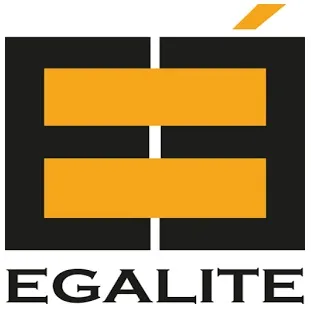Bangalore-based Egalite gives rural banking a breath of fresh software
The NSSO 59th Round Survey Results reveal 51.4% of farmer households are financially excluded from both formal/informal sources; only 27% of farmer households have access to formal sourced of credit. As per Government of India Population Census 2011, only 58.7% of households avail banking services in the country. Many other studies such as the CRISIL Financial Inclusion Index, the World Bank ‘Financial Access Survey’ of 2011, etc. would all point out to the lack of formal banking systems in large parts of rural India.
Financial Inclusion
Bringing banking services to rural areas is part of the larger scheme of financial inclusion. According to The Committee on Financial Sector Reforms, ‘Financial Inclusion, broadly defined, refers to universal access to a wide range of financial services at a reasonable cost. These include not only banking products but also other financial services such as insurance and equity products.’
Banking Agents
To solve this issue banks would either have to open branches in rural areas, or the people living in the rural areas would have to travel to the closest urban center to access any form of banking services. Both of these options are expensive and time-consuming. The emergence of newer delivery models, like baking agents/intermediaries, allowed by the RBI in 2010, can change the economics of banking with the poor. The RBI has relaxed norms and attempted to create a conducive environment for financial inclusion via various incentives, such a relaxed KYC requirements, etc. (you may read about the RBI incentives in their report ‘Financial Inclusion in India – An Assessment).
In February 2011 the Government of India launched a campaign called Swabhimaan, to bring banking services to rural areas, in the country. Basic services like deposits, withdrawals and remittances would be provided by the banks, through the use of intermediaries, in more than 20,000 villages without banking services.

Current ScenarioA few large Indian banks have already made inroads into the rural market via the use of Business Correspondents (intermediaries) to provide basic banking services. However, the usefulness of the Business Correspondent model is heavily dependent on the sort of support provided by the bank, and the supervision of cash management issues and customer grievances by the bank.
What?
To address the above issues, Bangalore-based BFSI Software Consulting has developed a mobile platform, called Egalite, which will integrate the core banking systems of the bank with the mobile devices used by the Business Correspondents. BFSI Software Consulting works on installing Oracle’s Core Banking Software Solution, FlexCube, in leading banks across the country.
How?
The mobile platform has been developed on Android and can be used out of any Android-enabled device. The application syncs up directly with the Bank’s/Micro-Financial Institution’s core banking system and updates the data, in real-time, given the device is connected to the internet.
The team behind Egalite is looking at African countries, India and the Asia-Pacific countries as potential markets since these areas have a large unbanked rural population.
The deployment of this piece of software is believed to ‘reduce the risk of ‘fraud by agents’ and increase the productivity, thanks to the ease of use, because of the real-time updates’. Essentially, it becomes simpler for a bank to monitor progress.
Impact
“This software will impact the rural society by increasing self-employment and standard of living. The project will contribute to improving livelihoods and in building the financial security of the poor,” says a representative from BFSI. The company is targeting financial institutions with a clear intention to service the rural market. “We’ve had great responses from banks in countries like Cambodia, Bangladesh, Ethiopia, etc. The Bangladeshi government has laid down regulations and incentives for the banks servicing the rural markets, so it’s an exciting market right now,” reveals the representative.
Integrating Egalite with the core banking system is slated to take anywhere between a couple of weeks up to two months, depending on the software architecture of each bank. “We’re going for social impact, so it’s really hard to quantify the amount of value we will be able to generate,” mentions the representative.











